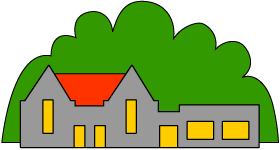At Aldborough Primary School, our aim is to encourage pupils to develop an understanding and appreciation of the world, initially building a secure physiological and social knowledge of the local community to then develop and apply this to a wider range of regions, countries and continents of the world.
Making links between these areas of learning with be the focus of teaching, with the aim of developing motivated, curious and engaged learners that take great interest in the world around them.
In EYFS, children are taught to name and locate different parts of the local area which often includes planned visits to the Village Green to observe the natural and built environment before being asked to express their opinions on our local area. Caring for the living environment is hugely important and children will be able to gain skills and knowledge relating to this by talking to people, examining photos and visiting places. Our curriculum is planned to enable the most disadvantaged children and those with SEND to achieve. Utilizing alternative ways for children to record their learning by using speech-to-text equipment allows topics to be accessed by all.
The curriculum is delivered via a four-year cycle (with weekly lessons being taught, dependent on whether the half-term focus is Geography or History) to ensure pupils receive a broad and balanced curriculum enabling them to cover all of the skills, knowledge and understanding required to become a skilled Geographer. This evolving and growing knowledge of the world should help them to ‘deepen their understanding of the interaction between physical and human processes, and of the formation and use of landscapes and environments.’
To ensure that pupils develop secure knowledge that they can build on, our Geography curriculum is designed to competently cover the four main strands: Locational Knowledge; Place knowledge; Human and Physical Geography; Geographical Skills and Fieldwork. When covering each of these strands, the content will be carefully sequenced and covered by each year group; staff will model explicitly the subject-specific vocabulary and skills relevant to the unit using dual coding to support children’s long-term memory and help them develop complex and well-connected schema.
Cognitive Science strategies are used in class to support children’s memory skills. The teaching in ‘chunks’ allows children’s cognitive load to be
at the appropriate level allowing them to know and remember more. Quizzing and mind mapping are just two of the tools teachers use to
support children’s learning in Geography.
Children will be given the opportunity to enrich their learning of the subject both in and out of the classroom where appropriate to create memorable learning opportunities. School trips and in school visitors will be utilized to further support and develop their understanding.
Subject leaders are given regular time to ensure resources are kept up to date, to monitor the subject across the school, create action plans and to provide subject feedback when appropriate.
At Aldborough Primary School, Geography assessment is ongoing throughout the teaching and learning of the subject to inform teachers about their planning, lesson activities and differentiation.’ Before a unit of work is delivered, children will undertake a pre-assessment involving three questions relating to the content to be taught in that unit. This will include both a disciplinary and a substantive knowledge-based question plus an additional question to allow for a greater-depth response. This process will be repeated at the end of the unit to allow for progress to be shown. In Key Stage 1, the use of a pre-unit mind map and then a post-unit addition to the mind map in a different colour may be used as an alternative.
The Subject Leader will use the unit overviews for each topic, alongside children’s work, to monitor the skills and knowledge being taught as well as making sure the two year plan for Key Stage 1 and the respective four year plan for Key Stage 2 is being followed.
Similarly to History, the Subject leader will have allocated time to meet with children to discuss their learning and work in the subject to ensure that they have opportunities to share and communicate their learning outside of their written books.
Children’s work in books indicates that Geography is taught at an age appropriate level across each year group to allow them to know more and remember more Geography-specific terms and content. Children’s work in books must be good quality and show they take pride in the work they produce.
Book monitoring throughout the year takes place once a term to inform the Subject leader of any improvements or skills that need to be further enhanced.
